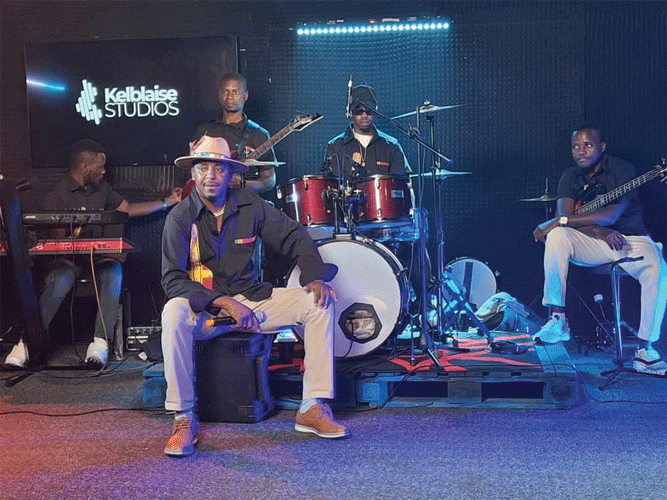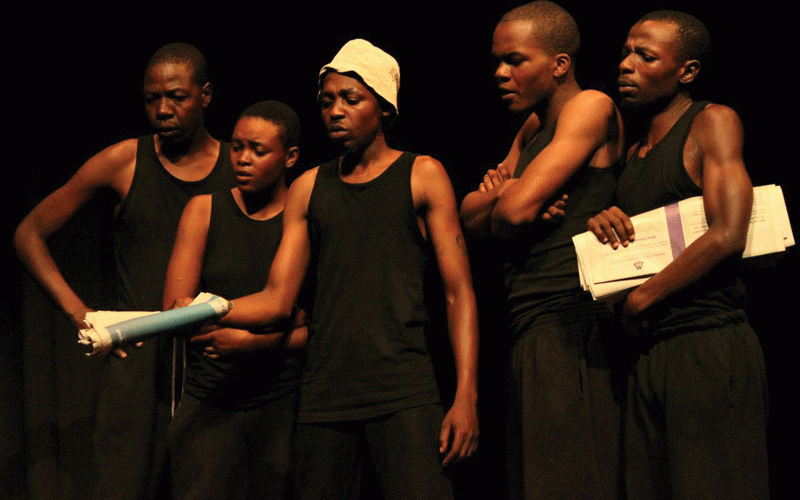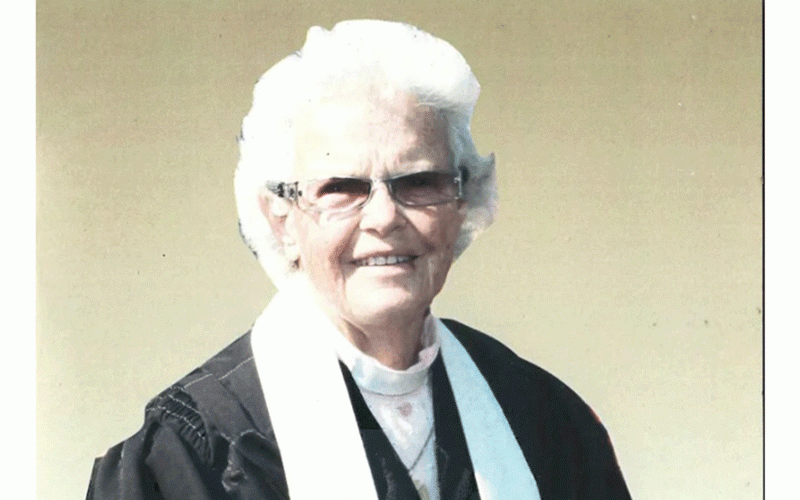
SOUTH Africa-based Zimbabwean RnB songstress Ashleigh Moyo (AM), popularly known as “Shashl” in music circles, said she was not in a hurry to release an album as she concentrates on singles to allow people to grow into her sound. Shashl, who is the daughter of Health minister Obadiah Moyo, had already made a significant mark both on the showbiz scene and her career when she became the first local female musician signed under the top recording label Universal Music, South Africa. Universal Music Group is home to the world’s biggest artistes, including Kanye West, Rihanna, Lady Gaga and Taylor Swift. NewsDay Life & Style reporter, Winstone Antonio (ND), spoke with the songstress about her career and below are the excerpts.
Sneak Peek: Winstone Antonio

ND: Early this month, you launched your new video, Blow it in the Wind. Tell us more about this video?
AM: I was extremely happy with the visuals for my latest single. It really brought out what my song is about. A very trippy feeling, dark, but at the same time to remind us all that it’s a dark world, but through it all, we can still be strong enough to rise even when we are at our lowest in life.
ND: Why did you write that particular song?
AM: When I wrote the song, it was to empower people and to remind them to know they are worthy.
ND: Universal Studios poured $6 000 into the production. Why do you think they made such a huge investment into your works?
AM: I would like to believe that the Universal Music Group has seen a lot of potential in me and my talent, and as all entrepreneurs would say, “you have to risk a lot to win a lot”, and for them to take the risk on me only means there is something, some place, some stage that is larger than we can see, and I have all, potential to be there. Also, I am the only trap soul singer signed by Universal (Music) in all of Africa, I guess that counts for something.
- Chamisa under fire over US$120K donation
- Mavhunga puts DeMbare into Chibuku quarterfinals
- Pension funds bet on Cabora Bassa oilfields
- Councils defy govt fire tender directive
Keep Reading
ND: You had an equally colourful launch for the video. Do you think that would be sufficient to help you make a mark in the industry?
SM: The music industry in Zimbabwe is not as large as it should be, but I do feel like it has made a mark on the people. My music is very different from the normal sound that is followed in Zimbabwe, so I feel that as the new school musicians, it will take a bit of time to break into the market.
ND: Your love for music began at a tender age, during which time you also learnt and mastered an assortment of music instruments. Do you think such exposure gives a musician the cutting edge once they begin singing professionally later in life?
SM: Yes, definitely. I am forever grateful to all my teachers that pushed me into studying music and mastering classical music, because with that, I had a huge advantage. It was much easier for me to direct my band members when I would perform. I am able to say what exactly I would be expecting from each instrument, because I have the knowledge of whether it can be done or not. With my recording producers, I am able to move faster with recording a track because I can point out errors in pitch control, among other things, which makes the whole process swifter. And generally, when you understand music as a whole, it makes it less work and more fun because you already know what needs to be done and how to move with trends.
ND: Many youngsters fight with their parents over their passions outside school work. And one would think your father, who is the Minister of Health, would probably have wanted you to study medicine. What has been your experience?
SM: My parents are extremely supportive of everything I do, if it’s right. I started music when I was nine years, so I think they saw how serious I was and how much I enjoyed it and also the much joy it brought to me. If I had started music during my O-Level year and decided to drop out of school, I am quite certain they would not have not supported that decision. However, education is a very important part in life and as much as I have completed my high school, I intend to do more to educate myself because as for everything, knowledge is the key.
ND: You settled for international producers. Is that an indictment on local producers?
SM: Not at all! I actually record locally as well. Only because I like my privacy in the studio, I’m not a fan of large crowds. The only time I race crowds is when I’m on stage. But I mainly record internationally because I am signed to a global record label, with millions of exceptional producers. Each has their different sounds and that brings variation to my music. Apart from that, I am based in Johannesburg.
ND: In May last year, you launched your debut single, No More, and expressed confidence that it would catapult you to stardom. Has that happened?
SM: It is the song that did the magic and got me signed to Universal Music, which was just the beginning of it all.
ND: Many musicians claim the returns from the industry are insignificant, unless you are a big name. What kind of effect will these sentiments have on you?
SM: Apart from the national struggle for money, I think some people forget it is a career that people rely on to pay their bills just as much as a doctors would. And at the end of the day, we have so many organisations that will approach us in anticipation that we will do something for free.
ND: Sungura, Zimdancehall and hip-hop are the dominant genres in Zimbabwe. Why did you choose RnB and what is your target market?
SM: I chose RnB because it resonates with my soul. I am very soft spoken generally. I also feel like RnB speaks to the soul, which goes hand in hand with what I usually write about. My target market is everyone willing to hear me out, because everyone goes through at least one or two things I have sung about, and everyone loves music. My main focus right now is the international market because they have received my music more and faster than it was received locally.
ND: In No More, you were singing for the heartbroken. Is that a reflection of your love life, perhaps?
SM: Not necessarily my life, but it is something everyone goes through at one point in their life. It was just a song that correlated with everyone’s feelings at one point in their life.
ND: Apart from music, what else do you do?
SM: I am an entrepreneur. I have my own clothing line which will also be kicking off in 2019, called “Shashl_ X Shashl”. I am also a brand model and a brand ambassador for many labels both locally and globally.
ND: Female artistes have always complained about widespread abuse in the industry. What do you think about that? Are you not afraid it may happen to you, too?
SM: It is every woman’s fear that something like that would happen to them, but I would just like to encourage all women to know that if you believe in yourself first, then the rest will follow in believing in you. You don’t need anyone to bring you up if it’s going to hurt you, because you have already gotten as far as you have alone. So, just be persistent, never give up, and never let anyone take advantage of you, as I said in my song “What is a crystal to a diamond?”
ND: Your parting shot?
SM: I am very pleased and grateful for everyone who has supported me throughout my journey. As much as I work hard alone in the studio, everyone around me works hard to spread the word about Shashl. I hope in future, many will climb along the bandwagon and join me and the family in creating a better industry and bigger home for musicians in Zimbabwe. I am forever grateful.










